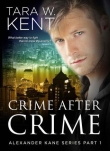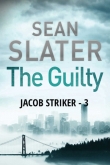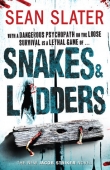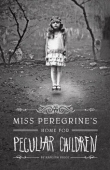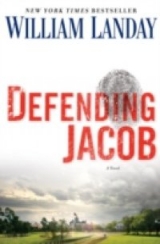
Текст книги "Defending Jacob"
Автор книги: William Landay
Соавторы: William Landay
Жанр:
Криминальные детективы
сообщить о нарушении
Текущая страница: 19 (всего у книги 25 страниц)
29
The Burning Monk
Day three of the trial.
Beside me at the defense table, Jacob picked at a gristly nubbin of skin on his right thumb, near the nail. He had been scraping away at this area of his thumb for a while, nervously, absently, and had opened a little crack that extended from the cuticle down about a quarter inch toward the knuckle. He did not chew the cuticle, as kids often do. His method involved scratching the skin with a fingernail, lifting little peels and shavings until he succeeded in scooping up a substantial sliver, whereupon he would bear down and set about removing the rubbery protrusion by a battery of wiggles, tugs, and, when all else failed, slicing it with the dull edge of a fingernail. The area of these excavations never had a chance to heal. After a particularly aggressive excision, blood would seep from the wound, and he would have to squeeze his thumb with a Kleenex, if he had one, or stick the whole thing in his mouth to slurp it clean. He seemed to believe, against all logic, that no one could be bothered by this nauseating little drama.
I took the hand Jacob was punishing and moved it down into his lap, out of the jurors’ sight, then rested my arm protectively on the back of his chair.
On the stand, a woman was testifying. Ruthann Something-or-other. She was fifty years old or so. Likeable face. Short, plain haircut. More gray hair than dark, a fact she made no effort to conceal. No jewelry except a watch and wedding ring. She wore black clogs. She was one of the neighbors who walked their dogs along the trails in Cold Spring Park every morning. Logiudice had called her to testify that she passed a boy who roughly resembled Jacob near the murder scene that morning. It would have been a worthwhile bit of evidence if only this woman could deliver on it, but she was obviously suffering on the stand. She washed her hands over and over in her lap. She weighed every question before answering. Before long, her anxiety became more compelling than her actual testimony, which did not amount to much.
Logiudice: “Could you describe this boy?”
“He was average, I guess. Five nine, five ten. Skinny. He was wearing jeans and sneakers. Dark hair.”
This was not a boy she was describing, it was a shadow. Half the kids in Newton fit the description, and she was not done yet. She hedged and hedged, until Logiudice was reduced to prompting his own witness by sneaking into his questions little reminders, like cue cards, of what she had said in her initial answers to the police on the day of the murder. The prosecutor’s constant prompting got Jonathan up on his feet to object over and over, and the whole thing became increasingly ridiculous, with the witness getting ready to recant the ID, and Logiudice too dense to get her off the stand before she made it official, and Jonathan jumping up and down to object to the leading– and somehow it all faded into the background for me. I could not focus on it, let alone care about it. I had a sinking sense that this whole trial did not matter. It was already too late. Dr. Vogel’s verdict mattered at least as much as this one would.
Next to me was Jacob, this riddle Laurie and I had made. His size, his resemblance to me, the likelihood that he would fill out and come to resemble me even more-all this shattered me. Every father knows the disconcerting moment when you see your child as a weird, distorted double of yourself. It is as if for a moment your identities overlap. You see an idea, a conception of your boyish inner self, stand right up in front of you, made real and flesh. He is you and not you, familiar and strange. He is you restarted, rewound; at the same time he is as foreign and unknowable as any other person. In the push/pull of this confusion, with my arm on the back of his chair, I touched his shoulder.
Guiltily he laid his hands flat on his lap, where he had gone back to picking the raw skin on his right thumb and had managed to pry up a new sliver.
Directly behind me, Laurie sat alone on the front bench. She sat alone every day of the trial. We were friendless in Newton, of course. I wanted to enlist Laurie’s parents to sit with her in the courtroom. I am sure they would have done it. But Laurie would not allow it. She was being a bit of a martyr here. She had brought down catastrophe on her own family by marrying into mine; now she was determined to pay the price alone. In court, people tended to leave a foot or so on either side of her. Whenever I turned, she was alone in that zone of isolation on the bench, distracted, her arms half folded, her chin resting in one hand, listening, looking down at the floor rather than at the witness. The night before, Laurie had been so shaken by Dr. Vogel’s diagnosis that she begged one of my Ambiens and still could not sleep. Lying in bed in the dark, she said, “If he is guilty, Andy, what do we do?” I told her there was nothing to do at the moment but wait until the jury decided if he was guilty or not. I tried to snuggle with her to comfort her, which seemed like the husbandly thing to do, but my touch rattled her even more and she wriggled away from me to the very edge of the bed, where she lay as still as she could but quite obviously awake, her sniffles and little movements betraying her. Back in her teaching days, Laurie had been (to me) a miraculous sleeper. She turned off the light as early as nine o’clock because she had to wake up so early, and she was asleep as soon as her head hit the pillow. But that was another Laurie.
Meanwhile, in the courtroom Logiudice apparently had decided to ride it out to the end with this witness, even as she gave every sign of imploding. It is hard to justify Logiudice’s decision in strategic terms, so I imagine he just wanted to prevent Jonathan from having the honor of eliciting her final recantation. Or maybe he still hoped, desperately, that she would come around in the end. But he would not give up, the stubborn bastard. It was actually sort of noble, in a weird way, like a captain going down with his ship or a monk dousing himself with gasoline and setting himself on fire. By the time Logiudice got to his last question-he had scripted the whole examination on his yellow legal pad and stuck to the script even as the witness improvised freely-Jonathan had put down his pen and was watching through his fingers.
Question: “Is the boy you saw in Cold Spring Park that morning sitting here in the courtroom today?”
Answer: “I can’t be sure.”
“Well, do you see a boy matching the description you gave of the boy from the park?”
Answer: “I don’t-I’m really not sure anymore. It was a kid. That’s all I know for sure. It was a long time ago. The more I think about it, I just don’t want to say. I don’t want to send some kid to prison for life if there’s a chance I might be wrong. I couldn’t live with myself if I did that.”
Judge French blew out a long, droll sigh. He arched his eyebrows and removed his glasses. “Mr. Klein, I take it you have no questions?”
“No, Your Honor.”
“I didn’t think so.”
Things did not improve much for Logiudice the rest of that day. He had organized his witnesses into logical groups, and today was devoted to the civilian witnesses. They were passersby. None had seen anything especially damning from Jacob’s point of view. But then, it was a weak case, and Logiudice was right to throw everything he had into the pot. So we heard from two more people, a man and a woman, who each testified they saw Jacob in the park, albeit not near the murder scene. Another witness saw a figure running from the general area of the murder. She could not say anything about this person’s age or identity, but the clothes roughly matched what Jacob was wearing that day, even if jeans and a light jacket were not exactly a distinctive uniform, especially in a park filled with kids walking to school.
Logiudice did end on a harrowing note. His last witness was a man named Sam Studnitzer who was walking his dog through the park that morning. Studnitzer had a very short haircut, narrow shoulders, a gentle manner.
“Where were you going?” Logiudice asked.
“There is a field where dogs can run around off the leash. I take my dog most mornings.”
“What kind of dog is he?”
“A black Lab. His name is Bo.”
“What time was it?”
“Around eight-twenty. I’m usually earlier.”
“Where in the park were you and Bo?”
“We were on one of the paths through the woods. The dog had gone on ahead, sniffing around.”
“And what happened?”
Studnitzer hesitated.
The Rifkins were in the courtroom, on the front bench behind the prosecution table.
“I heard a little boy’s voice.”
“What did the little boy say?”
“He said, ‘Stop, you’re hurting me.’ ”
“Did he say anything else?”
Studnitzer slumped, frowned. Quietly: “No.”
“Just ‘Stop, you’re hurting me’?”
Studnitzer did not answer, but clamped fingers over his temples, covering his eyes.
Logiudice waited.
The courtroom was so dead quiet, Studnitzer’s sniffly breathing was clearly audible. He took his hand away from his face. “No. That’s all I heard.”
“Did you see anyone else around you?”
“No. I couldn’t see very far. The sight lines are limited. That part of the park is hilly. The trees grow thick. We were coming down a little slope. I couldn’t see anyone.”
“Could you tell which direction the cry came from?”
“No.”
“Did you look around, did you investigate? Did you try to help the little boy in any way?”
“No. I didn’t know. I thought it was just kids. I didn’t know. I didn’t think anything of it. There are so many kids in that park every morning, laughing, fooling around. It sounded like just… roughhousing.” His eyes fell.
“What did the boy’s voice sound like?”
“Like he was hurt. He was in pain.”
“Were there any other sounds after the cry? Pushing, sounds of a struggle, anything at all?”
“No. I didn’t hear anything like that.”
“What happened next?”
“The dog was alert, hyper, strange. I didn’t know what his problem was. I kind of pushed him along, and we kept on walking through the park.”
“Did you see anyone as you were walking?”
“No.”
“Did you observe anything else unusual that morning?”
“No, not until after, when I heard the sirens and cops started streaming into the park. That’s when I found out what happened.”
Logiudice sat down.
Everyone in the courtroom was hearing those words in a loop in their heads: Stop, you’re hurting me. Stop, you’re hurting me. I have not gotten them out of my head yet. I doubt I ever will. But the truth is, even this detail did not point to Jacob.
To underscore that fact, Jonathan stood up on cross to ask a single perfunctory question: “Mr. Studnitzer, you never saw this boy, Jacob Barber, in the park that morning, did you?”
“No.”
Jonathan took a moment to shake his head in front of the jury and say, “Terrible, terrible,” to demonstrate that we too were on the side of the angels.
There it stood. Despite everything-Dr. Vogel’s awful diagnosis and Laurie’s shell shock and the hauntingly ordinary words of the boy as he was stabbed-after three days we were still up, way up. If this were a Little League game, we might be talking about the mercy rule. As it turned out, it was our last good day. Mr. Logiudice: Let me stop you there for just a moment. I understand your wife was upset. Witness: We were all upset. Mr. Logiudice: But Laurie in particular was struggling. Witness: Yes, she was having a hard time handling the pressure. Mr. Logiudice: More than that. She was clearly having her doubts about Jacob’s innocence, especially after you all spoke with Dr. Vogel and got the full diagnosis in some detail. She even asked you point-blank what you two ought to do if he was guilty, didn’t she? Witness: Yes. A little later. But she was very upset at that moment. You have no idea what this sort of pressure is like. Mr. Logiudice: What about you? Weren’t you upset too? Witness: Of course I was. I was terrified. Mr. Logiudice: Terrified because you were finally beginning to consider the possibility Jacob might be guilty? Witness: No, terrified because the jury might convict him whether he was actually guilty or not. Mr. Logiudice: It still hadn’t crossed your mind that Jacob might actually have done it? Witness: No. Mr. Logiudice: Not once? Not for a single second? Witness: Not once. Mr. Logiudice: “Confirmation bias,” is that it, Andy? Witness: Fuck you, Neal. Heartless prick. Mr. Logiudice: Don’t lose your temper. Witness: You’ve never seen me lose my temper. Mr. Logiudice: No. I can just imagine. [The witness did not respond.] Mr. Logiudice: All right, let’s continue.
30
The Third Rail
Trial day four.
Paul Duffy on the stand. He wore a blue blazer, rep tie, and gray flannel pants, which was about as formal as he ever managed to dress. Like Jonathan, he was one of those men it is easy to imagine as boys, men whose appearance almost forces you to see the boy inside. It was nothing particular about his physical features, but a boyish quality in his manner. Maybe it was just the effect of my long friendship with him. To me, Paul remained twenty-seven years old forever, his age when I met him.
For Logiudice, of course, that friendship made Duffy a slippery witness. At the start, Logiudice’s manner was tentative, his questions overly cautious. If he had asked, I could have told him that Paul Duffy was not going to lie, even for me. It just wasn’t in him. (I would have told him also to put down his ridiculous yellow pad. He looked like a goddamn amateur.)
“Would you state your name for the record, please?”
“Paul Michael Duffy.”
“What do you do for work?”
“I’m a lieutenant detective with the Massachusetts State Police.”
“How long have you been employed by the state police?”
“Twenty-six years.”
“And what is your current assignment?”
“I am in a public relations unit.”
“Directing your attention to April 12, 2007, what was your assignment on that date?”
“I was in charge of a special unit of detectives assigned to the Middlesex District Attorney’s Office. The unit is called CPAC, for Crime Prevention and Control. It consists of fifteen to twenty detectives at any given time, all with the special training and experience required to assist the ADAs and local departments in the investigation and prosecution of complex cases of various kinds, particularly homicides.” Duffy recited this little speech in a drone, from rote memory.
“And had you participated in many homicide investigations prior to April 12, 2007?”
“Yes.”
“Approximately how many?”
“Over a hundred, though I was not in charge of all of them.”
“Okay, on April 12, 2007, did you receive a phone call about a murder in Newton?”
“Yes. Around nine-fifteen A.M. I got a call from a Lieutenant Foley in Newton informing me there had been a homicide involving a child in Cold Spring Park.”
“And what was the first thing you did?”
“I called the district attorney’s office to inform them.”
“Is that standard procedure?”
“Yes. The local department is required by law to inform the state police of all homicides or unnatural deaths, then we inform the DA immediately.”
“Who specifically did you call?”
“Andy Barber.”
“Why Andy Barber?”
“He was the First Assistant, which means he was the second in command to the district attorney herself.”
“What was your understanding about what Mr. Barber would do with that information?”
“He would assign an ADA to run the investigation for their office.”
“Might he keep the case for himself?”
“He might. He handled a lot of homicides himself.”
“Did you have any expectations that morning as to whether Mr. Barber would keep the case for himself?”
Jonathan lifted his butt six inches from his chair. “Objection.”
“Overruled.”
“Detective Duffy, what did you think Mr. Barber would do with the case at that point?”
“I did not know. I suppose I figured he might keep it. It looked like it might be a big case right from the get-go. He kept those sorts of cases a lot. But if he put someone else on it, that would not have surprised me either. There were other good people there besides Mr. Barber. To be honest, I did not really think about it much. I had my own job to do. I let him worry about the DA’s office. My job was to run CPAC.”
“Do you know whether the district attorney, Lynn Canavan, was informed right away?”
“I don’t know. I presume so.”
“All right, after telephoning Mr. Barber, what did you do next?”
“I went to the location.”
“What time did you arrive there?”
“Nine thirty-five in the morning.”
“Describe the scene when you first arrived.”
“The entrance to Cold Spring Park is on Beacon Street. There is a parking lot at the front of the park. Behind that there are tennis courts and playing fields. Then behind the fields it is all woods, and there are trails leading off into the woods. There were a lot of police vehicles in the parking lot and on the street out front. Lots of cops around.”
“What did you do?”
“I parked on Beacon Street and approached the location on foot. I was met by Detective Peterson of the Newton Police and by Mr. Barber.”
“Again, was there anything unusual about Mr. Barber’s presence at the homicide scene?”
“No. He lived pretty close to the location, and he generally went to homicide scenes even if he didn’t intend to keep the case.”
“How did you know Mr. Barber lived near Cold Spring Park?”
“Because I’ve known him for years.”
“In fact, you two are personal friends.”
“Yes.”
“Close friends?”
“Yes. We were.”
“And now?”
There was a hitch before he answered. “I can’t speak for him. I still consider him a friend.”
“Do you two still see each other socially?”
“No. Not since Jacob was indicted.”
“When was the last time you and Mr. Barber spoke?”
“Before the indictment.”
A lie, but a white lie. The truth would have been misleading to the jury. It would have suggested, wrongly, that Duffy could not be trusted. Duffy was biased but honest about the big questions. He did not flinch as he delivered the statement. I did not flinch at it either. The point of a trial is to reach the right result, which requires constant recalibration along the way, like a sailboat tacking upwind.
“All right, you get to the park, you meet Detective Peterson and Mr. Barber. What happens next?”
“They explained the basic situation to me, that the victim had already been identified as Benjamin Rifkin, and they walked me through the park to the actual scene of the homicide.”
“What did you see when you got there?”
“The perimeter of the area was already taped off. The M.E. and crime-scene-services technicians had not arrived at the location yet. There was a photographer from the local police there taking pictures. The victim was still lying on the ground, the body, with nothing much around it. Basically they froze the scene when they got there, to preserve it.”
“Could you actually see the body?”
“Yes.”
“Could you describe the position of the body when you first saw it?”
“The victim was lying on a hill with the head at the lower end and the feet farther up the hill. It was twisted so the head was looking up toward the sky and the bottom half of the body and the legs were on its side.”
“What did you do next?”
“I approached the body with Detective Peterson and Mr. Barber. Detective Peterson was showing me details about the scene.”
“What was he showing you?”
“At the top of the hill, near the trail there was a good deal of blood on the ground, cast-off blood. I saw a number of droplets that were quite small, less than an inch in diameter. There were also a few larger stains that appeared to be what is called contact smears. These were on the leaves.”
“What is a contact smear?”
“It’s when a surface with wet blood contacts another surface and the blood transfers. It leaves a stain.”
“Describe the contact smears.”
“They were farther down the hill. There were several. They were several inches long at first, and as you went farther down the hill they became thicker and longer, more blood.”
“Now, I understand that you are not a criminalist, but did you form any impressions at the time, or theories, about what this blood evidence suggested?”
“Yes, I did. It looked like the homicide had taken place near the trail, where there were blood drops that had fallen, then the body fell or was pushed down the side of the hill, causing it to slide on its stomach, leaving the long contact smears of blood on the leaves.”
“All right, so having formed this theory, what did you do next?”
“I went down and inspected the body.”
“What did you see?”
“It had three wounds across the chest. It was a little difficult to see because the front of the body was soaked in blood, the victim’s shirt. There was also quite a bit of blood around the body where it had apparently been draining out of these wounds.”
“Was there anything unusual about those bloodstains, the pooled blood around the body?”
“Yes. There were some molded prints, shoe prints and other impressions, in the blood, meaning someone had stepped in the wet blood and left a print in it, like a mold.”
“What did you conclude from those molded shoe prints?”
“Obviously someone had stood or knelt beside the body soon after the murder, while the blood was still wet enough to take the impression.”
“Were you aware of the jogger, Paula Giannetto, who discovered the body?”
“Yes, I was.”
“How did that figure in your thinking about the molded prints?”
“I thought she might have left them, but I could not be sure.”
“What else did you conclude?”
“Well, there was quite a bit of blood that had been cast off during the attack. It had sprayed and also been smeared. I did not know how the attacker might have been standing, but I figured from the position of the wounds on the victim’s chest that he was probably standing right in front of him. So I figured the person we were looking for might have some blood on him. He might also have a weapon, although a knife is small and pretty easy to dispose of. But the blood was the big thing. It was a reasonably messy scene.”
“Did you make any other observations about the victim, particularly about his hands?”
“Yes, they were not cut or injured.”
“What did that suggest to you?”
“The absence of defensive wounds suggested he did not struggle or fight back against his assailant, which suggested he was either surprised or never saw the attack coming and did not have a chance to get his hands up to block the blows.”
“Suggesting he may have known his assailant?”
Jonathan levitated his butt a few inches above his chair again. “Objection. Speculation.”
“Sustained.”
“All right, what did you do next?”
“Well, the murder was still relatively fresh. The park had been sealed, and we immediately searched it to ascertain if there were any individuals in it. That search had begun before I got there.”
“And did you find anyone?”
“We found a few people who were pretty far away from the scene. No one seemed particularly suspicious. There was no indication that any of them were connected with the homicide in any way.”
“No blood on them?”
“No.”
“No knives?”
“No.”
“So it’s fair to say that in the early hours of the investigation you had no obvious suspects?”
“We had no suspects at all.”
“And over the next few days, how many suspects were you able to identify and develop?”
“None.”
“What did you do next? How did you continue the investigation?”
“Well, we interviewed everyone we could who had any information. The victim’s family and friends, anyone who might have seen anything the morning of the murder.”
“Did this include the victim’s classmates?”
“No.”
“Why not?”
“There was some delay in getting into the school. The parents in the town were concerned about us interviewing the kids. There was some discussion about whether the kids needed to have a lawyer present at the interviews and whether we could go into the school without a warrant, into the lockers and things. There was also some discussion about whether it was appropriate to use the school building for the interviews and which students we would be allowed to interview.”
“What was your reaction to all this delay?”
“Objection.”
“Overruled.”
“I was angry, to be honest. The colder a case gets, the harder it is to solve.”
“And who was running the case with you for the district attorney’s office?”
“Mr. Barber.”
“Andrew Barber, the defendant’s father?”
“Yes.”
“Did it strike you by this time that there was something inappropriate about Andy Barber working this case when his son’s school was involved?”
“Not really. I mean, I was aware of it. But it wasn’t like a Columbine thing: we didn’t necessarily have a kid-on-kid murder. We did not have any real reason to believe any of the kids at the school were involved, let alone Jacob.”
“So you never questioned Mr. Barber’s judgment in this regard, even in your own mind?”
“No, never.”
“Did you ever discuss it with him?”
“Once.”
“And would you describe that conversation?”
“I just said to Andy that, you know, just to cover your… derriere, you might want to pass this one off.”
“Because you saw a conflict of interest?”
“I saw that his kid’s school might be involved, and you never know. Why not just keep your distance?”
“And what did he say?”
“He said there was no conflict, because if his kid was ever in danger from a murderer, then that was all the more reason he would want to see the case solved. Plus, he said he felt some responsibility because he lived in the town and there weren’t many homicides there, so he figured people would be especially upset. He wanted to do the right thing for them.”
Logiudice paused at that last phrase and glared at Duffy for just an instant.
“Did Mr. Barber, the defendant’s father, ever suggest that you pursue a theory that one of Ben Rifkin’s classmates might have murdered him?”
“No. He never suggested that or ruled it out.”
“But he did not actively pursue a theory that Ben was killed by a classmate?”
“No. But you don’t ‘actively pursue’-”
“Did he try to steer the investigation in any other direction?”
“I don’t understand, ‘steer’ it?”
“Did he have any other suspects in mind?”
“Yes. There was a man named Leonard Patz who lived near the park, and there was some circumstantial indication he might be involved. Andy wanted to pursue that suspect.”
“In fact, wasn’t Andy Barber the only one pushing Patz as a suspect?”
“Objection. Leading.”
“Sustained. This is your witness, Mr. Logiudice.”
“Withdraw the question. You did ultimately interview the children, Ben’s classmates at the McCormick School?”
“Yes.”
“And what did you learn?”
“Well, we learned at some length-because the kids were not very forthcoming-that there was an ongoing beef between Ben and the defendant, between Ben and Jacob. Ben had been bullying Jacob. That led us to begin considering Jacob as a suspect.”
“Even while his father ran the investigation?”
“Certain aspects of the investigation had to be carried out without Mr. Barber knowing.”
This came as a hammer blow to me. I had not heard it before. I had assumed something like it, but not that Duffy himself was involved. He must have seen my face fall, because a helpless look crossed his face.
“And how did this come about? Was another assistant DA appointed to investigate the case without Mr. Barber’s knowledge?”
“Yes. You.”
“And this was done on whose approval?”
“The district attorney, Lynn Canavan.”
“And what did this investigation reveal?”
“Evidence developed against the defendant to the effect that he had a knife consistent with the wounds, he had sufficient motive, and most important he had stated his intention to defend himself with the knife if the victim continued to bully him. The defendant had also come to school with a small amount of blood on his right hand that morning, blood drops. We learned these things from the defendant’s friend, Derek Yoo.”
“The defendant had blood on his right hand?”
“According to his friend Derek Yoo, yes.”
“And he had announced his intention to use the knife on Ben Rifkin?”
“That’s what Derek Yoo informed us.”
“At some point did you become aware of a story on a website called the Cutting Room?”
“Yes. Derek Yoo described that to us as well.”
“And did you investigate this website, the Cutting Room?”
“Yes. It is a site where people post fantasy stories that are mostly about sex and violence, including some very disturbing-”
“Objection.”
“Sustained.”
“Did you find a story on the Cutting Room website that related to this case?”
“Yes, we did. We found a story that described the murder essentially from the murderer’s point of view. The names were changed and some of the details were a little off, but the situation was the same. It was obviously the same case.”
“Who wrote that story?”
“The defendant did.”
“How do you know that?”
“Derek Yoo informed us the defendant had told him.”
“Were you able to confirm that in any other way?”
“No. We were able to determine the ISP of the computer the story was originally uploaded from, which is like a fingerprint identifying where the computer is located. It came back to the Peet’s coffee shop in Newton Centre.”
“Were you able to identify the actual machine that was used to upload the story?”
“No. It was someone who linked to the coffee shop’s wireless network. That was as far as we could trace it. Peet’s does not keep records of which computers jump on and off that network, and it does not require users to sign on to the network with a name or a credit card or anything. So we could not trace it any further.”
“But you had Derek Yoo’s word that the defendant had admitted writing it?”
“Correct.”
“And what was it about the story that made it so compelling, that convinced you only the murderer could have written it?”
“Every detail was there. The clincher for me was that it described the angle of the knife wounds. The story said the stabs were planned to enter the chest at an angle that would allow the knife blade to penetrate between the ribs to maximize the damage to internal organs. I didn’t think anyone would know about the knife angle. It wasn’t public information. And it would not be an easy detail to guess because it requires the attacker hold the knife at an unnatural angle, horizontally, so it slips between the ribs. Also the level of detail, the planning-it was essentially a written confession. I knew we had probable cause to arrest at that point.”


